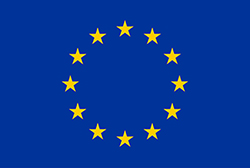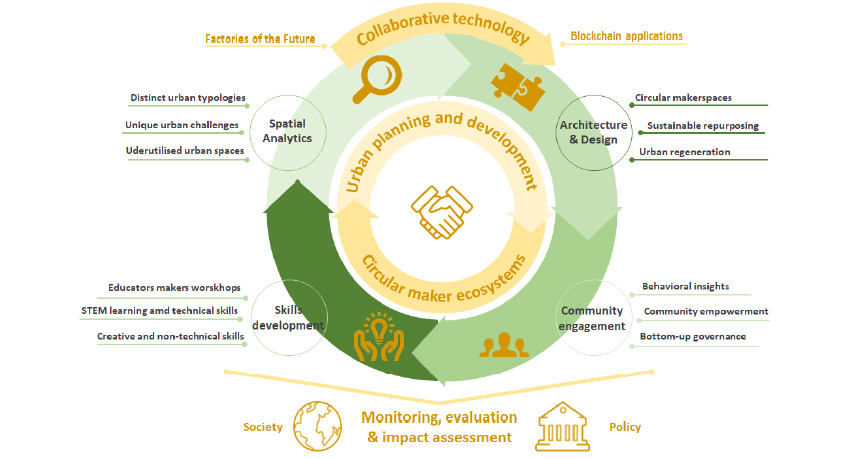Pop-Machina
Collaborative production for the circular economy; a community approach
Pop-Machina aims to demonstrate the potential of circular economy and collaborative production by developing, supporting and monitoring Circular Maker Communities in 7 pilot areas. Pop-Machina puts forth an elaborate community engagement programme to incentivise existing maker communities and help establish new ones in Leuven (BE), Istanbul (TR), Kaunas (LT), Piraeus (GR), Santander (ES), Thessaloniki (GR) and Venlo (NL).
The project draws from a number of cutting-edge technologies (factory-of-the-future, blockchain) and disciplines (urban planning, architecture) to find the areas more in need of intervention, reconfigure unused spaces and provide the support necessary to overcome scaling issues, a typical drawback of collaborative production. Furthermore, education providers and makers are brought together to exchange ideas on tailored training programmes, with a particular focus on the empowerment and the skill development of vulnerable groups. Business services are also offered to foster the production of promising circular innovations.
In each pilot area, Pop-Machina will gather evidence of the power of circular maker communities and demonstrate business-oriented collaborative production of products and services from secondary raw material or other sustainable inputs, based on the needs and preferences of the local stakeholders. A thorough impact assessment framework with increased scope (e.g. attention to social factors) will be co-designed with stakeholders after short basic assessment trainings and will be used in the assessment of the pilot work. Based on the findings, the project will feature a series of policy events to openly discuss the tax and legal barriers that hamper collaborative production in European cities.
Facts
 | This project has received funding from the European Union’s Horizon 2020 Research and Innovation Programme under grant agreement No 821479 | |
| Grant amount: | € 9,999,592 Contribution to TU Delft: € 378,125 | |
Role: | Project partner | |
| Project duration: | June 2019 – June 2023 | |
Principal TU Delft researcher: | ||
Project partners
KU Leuven, City of Leuven, CREVIS, Municipality of Thessaloniki, Municipality of Piraeus, Q-Plan International, University of Macedonia, Santander City Council, Universidad de Cantabria, Municipality of Venlo, TU Delft, Istanbul Metropolitan Municipality, ISTAC, Planet Turkey, KOC University, Kaunas City Municipal Administration, ISM University of Management and Economics, University of Cambridge, CERTH Informatics and Telematics Institute, White Research, CommonLAWgic, Intrasoft International, IAAC Barcelona
